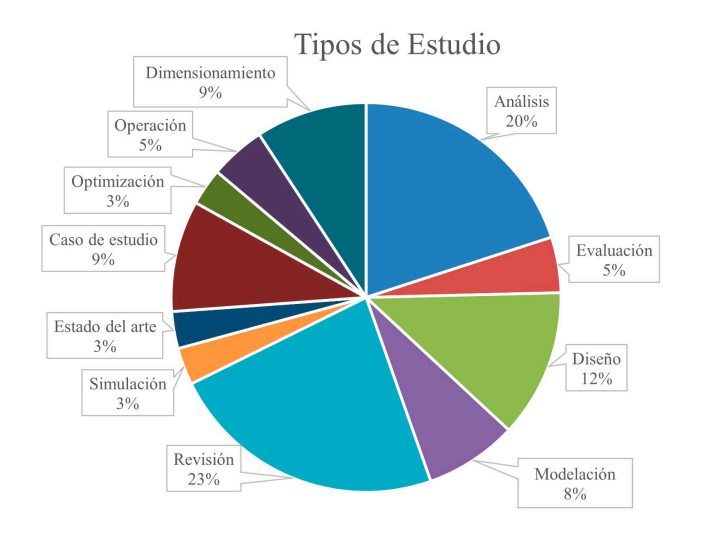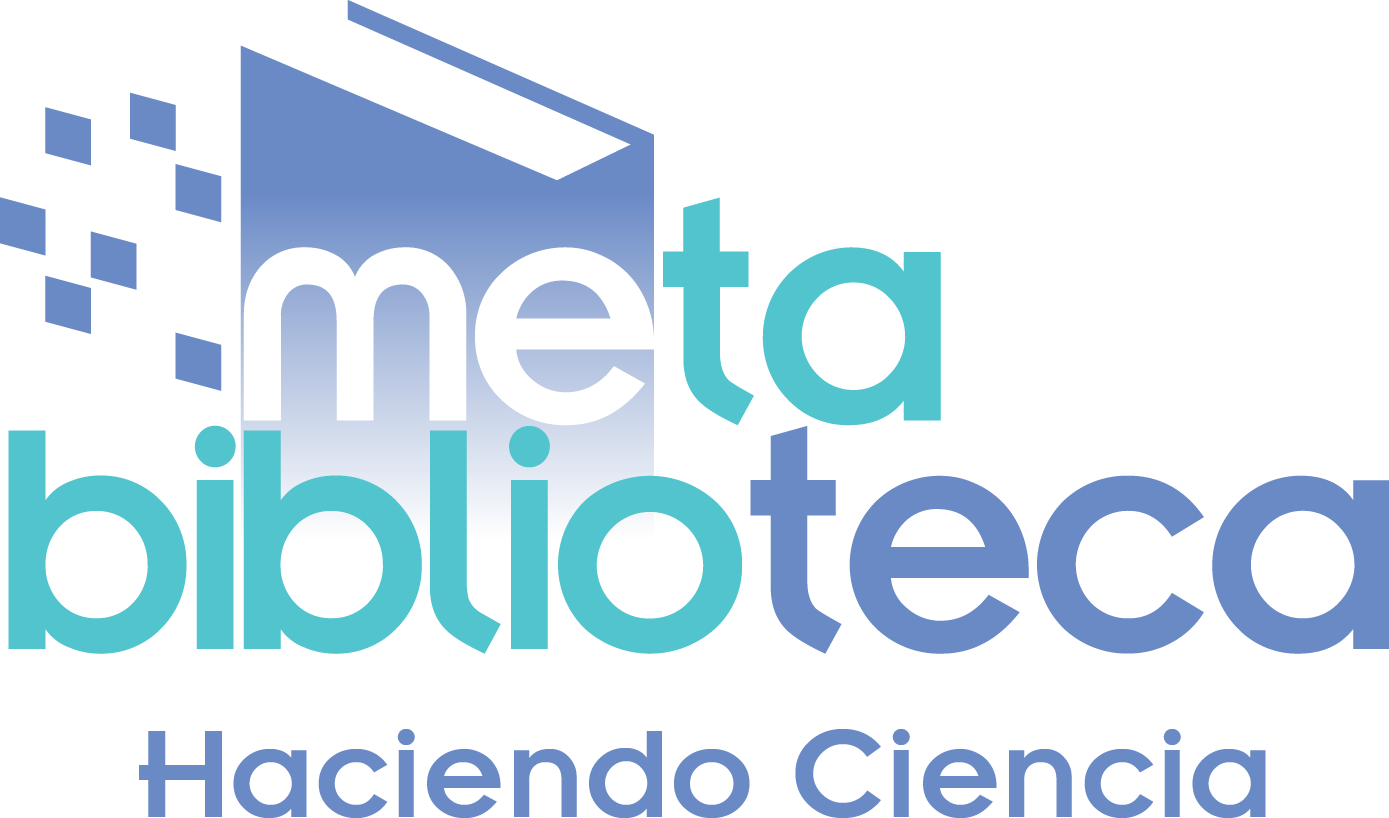Analysis of Hydrogen Integration in Hybrid Renewable Energy Systems under Energy Scenarios
Análisis de la Integración del Hidrógeno en Sistemas Híbridos de Energía Renovable en el marco de Escenarios Energéticos


This work is licensed under a Creative Commons Attribution-NonCommercial-NoDerivatives 4.0 International License.
Copyright statement
The authors exclusively assign to the Universidad EIA, with the power to assign to third parties, all the exploitation rights that derive from the works that are accepted for publication in the Revista EIA, as well as in any product derived from it and, in in particular, those of reproduction, distribution, public communication (including interactive making available) and transformation (including adaptation, modification and, where appropriate, translation), for all types of exploitation (by way of example and not limitation : in paper, electronic, online, computer or audiovisual format, as well as in any other format, even for promotional or advertising purposes and / or for the production of derivative products), for a worldwide territorial scope and for the entire duration of the rights provided for in the current published text of the Intellectual Property Law. This assignment will be made by the authors without the right to any type of remuneration or compensation.
Consequently, the author may not publish or disseminate the works that are selected for publication in the Revista EIA, neither totally nor partially, nor authorize their publication to third parties, without the prior express authorization, requested and granted in writing, from the Univeridad EIA.
Show authors biography
Hydrogen as an energy vector can provide energy in applications from low to large scale and contributes to the promotion of renewable energies as low-carbon emission alternatives. This paper presents a literature review on hybrid green hydrogen systems. It was found that 23% of the articles review different methodologies and comparisons of hydrogen technologies, 15% present technical, economic and environmental analyses of hydrogen-based systems and projects. Fifty-three percent of the reviewed articles focus on artificial intelligence methodologies and use of commercial software for sizing, energy management and optimization of these models on hybrid renewable energy systems with a high focus on off-grid systems. The potential for simulation models to be developed on this topic is quite large because of the decarbonization brought by hydrogen. The models should consider additional aspects of the entire hydrogen value chain to have a complete vision of its development in Colombia, taking into account the development opportunities in the framework of different energy scenarios.
Article visits 780 | PDF visits 443
Downloads
- Abdin, Z., Zafaranloo, A., Rafiee, A., Mérida, W., Lipiński, W. y Khalilpour, K.R. (2020) “Hydrogen as an energy vector”, Renewable and Sustainable Energy Reviews, 120(December 2019). Disponible en: https://doi.org/10.1016/j.rser.2019.109620.
- Ahadi, A. y Liang, X. (2017) “A stand-alone hybrid renewable energy system assessment using cost optimization method”, Proceedings of the IEEE International Conference on Industrial Technology, pp. 376–381. Disponible en: https://doi.org/10.1109/ICIT.2017.7913260.
- Ammari, C., Belatrache, D., Touhami, B. y Makhloufi, S. (2021) “Sizing, optimization, control and energy management of hybrid renewable energy system- a review”, Energy and Built Environment [Preprint]. Disponible en: https://doi.org/10.1016/j.enbenv.2021.04.002.
- Carvajal, H., Babativa, J.H. y Alonso, J.A. (2010) “Estudio sobre producción de H2 con hidroelectricidad para una economía de hidrógeno en Colombia”, Ingeniería Y Competitividad, 12(1), pp. 31–42. Disponible en: https://doi.org/10.25100/iyc.v12i1.2700.
- HassanzadehFard, H., Tooryan, F., Collins, E.R., Jin, S. y Ramezani, B. (2020) “Design and optimum energy management of a hybrid renewable energy system based on efficient various hydrogen production”, International Journal of Hydrogen Energy, 45(55), pp. 30113–30128. Disponible en: https://doi.org/10.1016/j.ijhydene.2020.08.040.
- IEA (2019) The Future of Hydrogen. Disponible en: https://doi.org/10.1787/1e0514c4-en.
- IEA (2022) Global Hydrogen Review 2022, Global Hydrogen Review 2022. Disponible en: https://doi.org/10.1787/39351842-en.
- IRENA (2020a) Green Hydrogen Cost Reduction: Scaling up Electrolysers to Meet the 1.50C Climate Goal. Disponible en: https://www.irena.org/-/media/Files/IRENA/Agency/Publication/2020/Dec/IRENA_Green_hydrogen_cost_2020.pdf.
- IRENA (2020b) “Reaching zero with renewables: Eliminating CO2 emissions from industry and transport in line with the 1.50C climate goal”, p. 216. Disponible en: https://www.irena.org/publications/2020/Sep/Reaching-Zero-with-Renewables.
- Kalinci, Y., Hepbasli, A. y Dincer, I. (2015) “Techno-economic analysis of a stand-alone hybrid renewable energy system with hydrogen production and storage options”, International Journal of Hydrogen Energy, 40(24), pp. 7652–7664. Disponible en: https://doi.org/10.1016/j.ijhydene.2014.10.147.
- Khalid, F., Dincer, I. y Rosen, M.A. (2016) “Analysis and assessment of an integrated hydrogen energy system”, International Journal of Hydrogen Energy, 41(19), pp. 7960–7967. Disponible en: https://doi.org/10.1016/j.ijhydene.2015.12.221.
- Khan, F.A., Pal, N. y Saeed, S.H. (2018) “Review of solar photovoltaic and wind hybrid energy systems for sizing strategies optimization techniques and cost analysis methodologies”, Renewable and Sustainable Energy Reviews, 92, pp. 937–947. Disponible en: https://doi.org/10.1016/j.rser.2018.04.107.
- Kovač, A., Paranos, M. y Marciuš, D. (2021) “Hydrogen in energy transition: A review”, International Journal of Hydrogen Energy, 46(16), pp. 10016–10035. Disponible en: https://doi.org/10.1016/j.ijhydene.2020.11.256.
- Mayyas, A., Wei, M. y Levis, G. (2020) “Hydrogen as a long-term, large-scale energy storage solution when coupled with renewable energy sources or grids with dynamic electricity pricing schemes”, International Journal of Hydrogen Energy, 45(33), pp. 16311–16325. Disponible en: https://doi.org/10.1016/j.ijhydene.2020.04.163.
- McKinsey & Company y Hydrogen Council (2021) Hydrogen Insights.
- Mills, A, Al-Hallaj, S. (2004) “Simulation of hydrogen-based hybrid systems using Hybrid2”, International Journal of Hydrogen Energy, 29(10), pp. 991–999. Disponible en: https://doi.org/10.1016/j.ijhydene.2004.01.004.
- Ministerio de Minas y Energía (2021) Hoja de ruta del hidrógeno en Colombia.
- Naciones Unidas (2015) Acuerdo de París.
- National Renewable Energy Laboratory - NREL (2018) “H2A: Hydrogen analysis production models”. Disponible en: https://www.nrel.gov/hydrogen/h2a-production-models.html.
- Nicita, A., Maggio, G., Andaloro, A.P.F. y Squadrito, G. (2020) “Green hydrogen as feedstock: Financial analysis of a photovoltaic-powered electrolysis plant”, International Journal of Hydrogen Energy, 45(20), pp. 11395–11408. Disponible en: https://doi.org/10.1016/j.ijhydene.2020.02.062.
- Nordin, N.D. y Rahman, H.A. (2019) “Comparison of optimum design, sizing, and economic analysis of standalone photovoltaic/battery without and with hydrogen production systems”, Renewable Energy, 141, pp. 107–123. Disponible en: https://doi.org/10.1016/j.renene.2019.03.090.
- Ortega, S., Ángel, E. y Jaramillo, A. (2022) Escenarios Energéticos - Seis posibilidades para la transición en Colombia.
- Posso, F., Espinoza, J.L., Sánchez, J. y Zalamea, J. (2015) “Hydrogen from hydropower in Ecuador: Use and impacts in the transport sector”, International Journal of Hydrogen Energy, 40(45), pp. 15432–15447. Disponible en: https://doi.org/10.1016/j.ijhydene.2015.08.109.
- Posso, F. y Zambrano, J. (2014) “Estimation of electrolytic hydrogen production potential in Venezuela from renewable energies”, International Journal of Hydrogen Energy, 39(23), pp. 11846–11853. Disponible en: https://doi.org/10.1016/j.ijhydene.2014.06.033.
- Riveros-Godoy, G.A., Cavaleiro, C. y Silva, E. (2012) “Analysis of electrolytic hydrogen production models and distribution modes for public urban transport: study case in Foz do Iguacu, Brazil”, International Journal of Energy Research, (37), pp. 1142–1150. Disponible en: https://doi.org/10.1002/er.
- Schwartz, P. (1996) The art of the long view: Planning for the future in an uncertain world. Ed. Currency.
- Squadrito, G., Nicita, A. y Maggio, G. (2021) “A size-dependent financial evaluation of green hydrogen-oxygen co-production”, Renewable Energy, 163, pp. 2165–2177. Disponible en: https://doi.org/10.1016/j.renene.2020.10.115.
- Valente, A., Iribarren, D., Dufour, J. y Spazzafumo, G. (2015) “Life-cycle performance of hydrogen as an energy management solution in hydropower plants: A case study in Central Italy”, International Journal of Hydrogen Energy, 40(46), pp. 16660–16672. Disponible en: https://doi.org/10.1016/j.ijhydene.2015.09.104.
- Vivas, F.J., De las Heras, A., Segura, F. y Andújar, J.M. (2018) “A review of energy management strategies for renewable hybrid energy systems with hydrogen backup”, Renewable and Sustainable Energy Reviews, 82(April 2016), pp. 126–155. Disponible en: https://doi.org/10.1016/j.rser.2017.09.014.
- Widera, B. (2020) “Renewable hydrogen implementations for combined energy storage, transportation and stationary applications”, Thermal Science and Engineering Progress, 16(September 2019), p. 100460. Disponible en: https://doi.org/10.1016/j.tsep.2019.100460.
- Xiao, P., Hu, W., Xu, X., Liu, W., Huang, Q. y Chen, Z. (2020) “Optimal operation of a wind-electrolytic hydrogen storage system in the electricity/hydrogen markets”, International Journal of Hydrogen Energy, 45(46), pp. 24412–24423. Disponible en: https://doi.org/10.1016/j.ijhydene.2020.06.302.
- Yamamoto, H., Fujioka, H. y Okano, K. (2021) “Cost analysis of stable electric and hydrogen energy supplies derived from 100% variable renewable resources systems”, Renewable Energy, 178, pp. 1165–1173. Disponible en: https://doi.org/10.1016/j.renene.2021.06.061.




